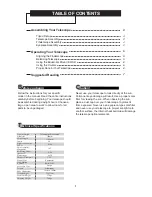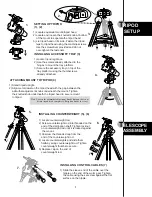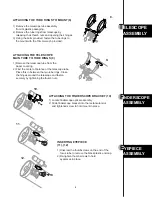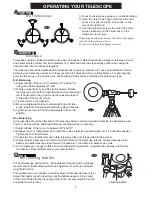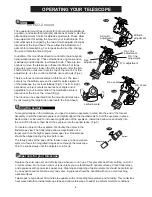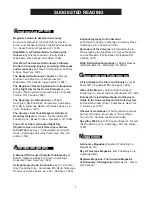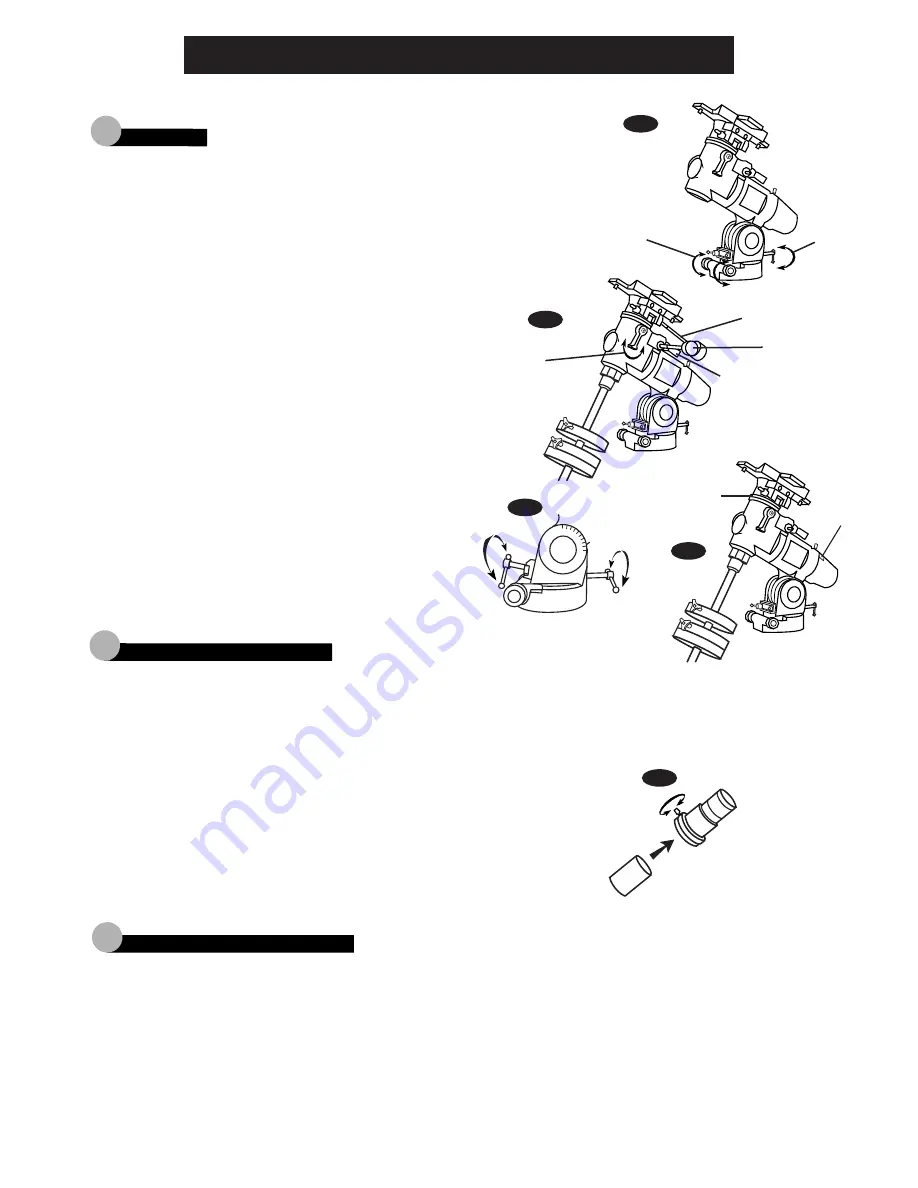
6
OPERATING YOUR TELESCOPE
To magnify images in the telescope, you need to insert an eyepiece (ocular) into the end of the focuser
assembly. Insert the desired eyepiece and lightly tighten the thumbscrews to hold the eyepiece in place.
Barlow lens can be used to increase magnification of the eyepiece. Install the barlow lense directly into
the end of the focuser, then insert the eyepiece into the barlow lense. (Fig.h)
To locate an object in the eyepiece, first locate the object in the
finderscope view. The finderscope allows magnification of a
larger area than the higher power telescope view. Finderscope
should be aligned during daytime before use.
The focus knobs at the base of the focuser uses a rack-and-pinion
system to focus the magnified images seen through the telescope.
Turn the knobs slowly until the objects are in focus.
U
sing the oculars
Replace the dust cap over end of telescope whenever not in use. This prevents dust from settling on mirror
or lens surface. Do not clean mirror or lens unless you are familiar with optical surfaces. Clean finderscope
and eyepieces with special lens paper only. Cleaning and aligning of optical elements should be preformed
by an experienced technician every two years. Eyepieces should be handled with care, avoid touching
optical surfaces.
Telescopes require about 30 minutes to equalize with surrounding temperature and humidity. This minimizes
heat wave distortion inside telescope tube and allows telescope to adapt to ambient moisture conditions.
P
roper care for your telescope
Fig.h
U
sing
the EQ3-2 mount
The equatorial mount has controls for both conventional altitude
(up-down) and azimuthal (left-right) directions of motion. Use the
altitude adjustment T-bolts for altitude adjustments. These allow
fine-adjustment for setting the mount to your local latitude. The
azimuthal axis is changed by the two azimuth adjustment knobs
located near the tripod head. These allow fine-adjustment of
azimuth for polar aligning. For large azimuth direction change,
lift up and rotate the tripod (Fig.d).
In addition, this mount has direction controls for polar-aligned
astronomical observing. These directions use right ascension
(east/west) and declination (north/south) axis. There are two
options to move the telescope in these directions: For large
and quick movement, loosen the R.A.lock level under the R.A.
shaft or the Dec. lock level near the top of the mount. For fine
adjustments, use the control cable/nob near each axis (Fig.e).
There are three numerical scales on this mount. The lower
scale is for the altitude axis and is used for polar-alignment
of the telescope to your local latitude (Fig.f). The R.A. (right
ascension) vernier scale is measures hour angle and is
adjustable to your local meridian. The declination scale is
located near the top of the mount (Fig.g).
The tripod can be separated from the mount and telescope
by unscrewing the large knob underneath the tripod head.
Altitude
adjustment
Azimuth
adjustment
Fig.d
R.A. scale
Dec. scale
Fig.g
Fig.f
0 1020
30
40
50
60
70
80
90
Latitude scale
Fig.e
Dec. fine
adjustment
R.A. fine
adjustment
R.A. adjustment
Dec.
adjustment
Barlow
Eyepiece


